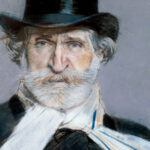Program Two: Sons of Bach, Sons of Palestrina
August 6, 2016
August 6, 2016


1 PM Preconcert Talk: David Rosen
1:30 PM Performance: Allegra Chapman '10, piano; Daedalus Quartet; Laura Flax, clarinet; Shari Hoffman, clarinet; John Kawa, tenor; Cecilia Violette López, soprano; Anna Polonsky, piano; Orion Weiss, piano; Brian Zeger, piano; Bard Festival Chamber Players; and others
Giacomo Puccini (1858–1924), Crisantemi (1890), Sole e amore (1888), E l'uccellino (1899), Ave Maria Leopolda (1896); Johann Sebastian Bach (1685–1750)/Ferruccio Busoni (1866–1924), from Ten Chorale Preludes (arr. 1898); Domenico Puccini (1772–1815), Piano Sonata No. 17 in A Major (n.d.); Giuseppe Verdi (1813–1901), String Quartet in E Minor (1873); Amilcare Ponchielli (1834–86), Il Convegno (1856); Ermanno Wolf-Ferrari (1876–1948), Quattro rispetti, Op. 11 (1902); Ottorino Respighi (1879–1936), Piano Quintet in F Minor, Op. 35 (1902); Alfredo Casella (1883–1947), from A la manière de . . . Johannes Brahms: Intermezzo (1911), Antonio Bazzini (1818–97), from Turanda (1867)